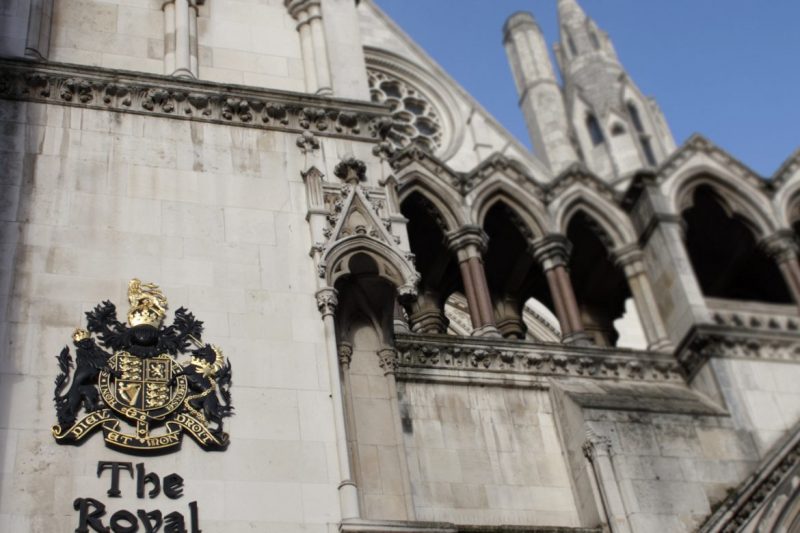Charles Edwards, Barrister and TECBAR Adjudicator reviews a High Court Judgment with regard to the dangers of using Letters of Intent. In Ampleforth Abbey Trust v Turner & Townsend Project Management Ltd [2012] EWHC 2137 (TCC), the High Court (TCC) found the Employer’s Project Manager liable for the Employer’s losses which had been caused by the failure of the Project Manager to finalise and procure the building contract with the Contractor prior to the completion of the project.
The Claimants in the proceedings were the Trustees of Ampleforth Abbey Trust (“the Trust”). The purpose of the Trust included the furtherance of education at Ampleforth College. The Defendant, Turner & Townsend Project Management Limited (“TTPM”), is a practice of construction professionals forming part of the Turner & Townsend Group. The Defendant was appointed by the Claimants to act as Project Manager on three construction projects, consisting of new boarding accommodation at Ampleforth College of which these proceedings relate to H5, the third project.
The works were completed significantly later than envisaged. A dispute arose between the Contractor and the Trust and the Contractor contended that it was entitled to extensions of time and additional payments in respect of the prolongation of the works whereas the Trust sought liquidated damages of £750,000 for the delayed completion of the works. At a formal mediation, it was agreed between the Trust and the Contractor that the Contractor would not receive any additional payments and that the Trust would not receive any liquidated damages, which it was seeking in the sum of £750,000 for the delayed completion of the works by the Contractor. The Trust was therefore not entitled to any liquidated damages for the delayed completion of the works by the Contractor.
The works on the third project were carried out under letters of intent which were issued by the Trust from time to time, because TTPM had failed to finalise and procure the building contract. In fact the intended building contract mentioned in the letters of intent was not executed until long after the works had been completed on terms that excluded the Trust receiving liquidated damages.
The Trust claimed damages against TTPM for professional negligence. The Trust alleged that, if TTPM had acted with the care and skill reasonably to be expected of a Project Manager, it would have procured the execution of the building contract with the Contractor, which it had failed to do. Furthermore, the Trust alleged that if TTPM had finalised and procured the execution of the building contract, the Contractor would have been liable to pay liquidated damages for delayed completion of the works on the third project and the Trust would have achieved a more advantageous outcome of its dispute with the Contractor.
TTPM denied that it was negligent in its management on the third project and also denied that anything which it might have done would have led the Contractor to execute the building contract. TTPM further contended that, even if the building contract had been executed by the Contractor, the Trust would have been in no better position in its dispute with Contractor. TTPM also counterclaimed for unpaid fees from the Trust relating to the third project.
In summary, the Court found amongst other things that:
i) TTPM owed to the Trust a duty to exercise reasonable care and skill for the purpose of procuring from the Contractor an executed contract. It was an implied term of the contract between the Trust and TTPM that TTPM would exercise reasonable care and skill in the performance of its functions: section 13 of the Supply of Goods and Services Act 1982. Furthermore, it was common ground between the parties that TTPM owed to the Trust a substantially similar duty of care at common law;
ii) TTPM was in breach of that duty, in that it failed to exercise sufficient focus on the matters holding up execution of the contract or to exert sufficient pressure on Contractor to finalise the contract;
iii) TTPM’s breach of duty caused the Trust’s loss, because if TTPM had not been in breach of duty:
(a) the Trust would have taken sufficient steps to ensure that, so far as lay within its power, it procured the building contract;
(b) there would have been a real and substantial chance of the Contractor executing a contract that contained a provision for liquidated damages;
(c) the existence of such a construction contract would have been a material benefit to the Trust in its dispute with the Contractor when completion of the works was delayed;
iv) In respect of quantum and the Trust’s loss:
(a) the probability is that, if there had been a contract in existence, the Trust and Contractor would have negotiated a reasonable settlement of their dispute. The value of such a settlement to the Trust, over and above the settlement it negotiated in the absence of a Contract, would have been £340,000, taking into account the probable price that the Trust would have had to pay to achieve the execution of the contract.
(b) the Trust was entitled to recover two-thirds of that amount, having regard to the size of the chance that the Contractor would indeed have signed the Contract.
(c) the Terms of Appointment which TTPM sent to the Trust included a limitation of liability provision in clause 11, however, TTPM was not entitled to rely on that clause to limit its liability for damages to the Trust as the Court held this clause to be unreasonable;
(d) the Trust was entitled to recover damages in the sum of £226,667 from TTPM. However, TTPM was entitled to recover its additional fees in the sum of £37,167 for additional work carried out.
If the facts and matters referred to above are relevant to you or your organisation, then please do not hesitate to contact me in chambers or directly via LinkedIn to see how I can assist you or your organisation.
The above is for general information only and does not constitute legal advice. The author does not assume any responsibility for the accuracy of any statements made and appropriate legal advice should be taken and relied upon before taking or omitting to take any action in respect of any specific matter.
Charles Edwin Edwards MSt(Cantab) MSc(Lond) FCInstCES Barrister
NEW TEMPLE CHAMBERS
2nd Floor Berkeley Square House
Berkeley Square
Mayfair
London W1J 6BD
Tel: +44(0)207 887 6098





